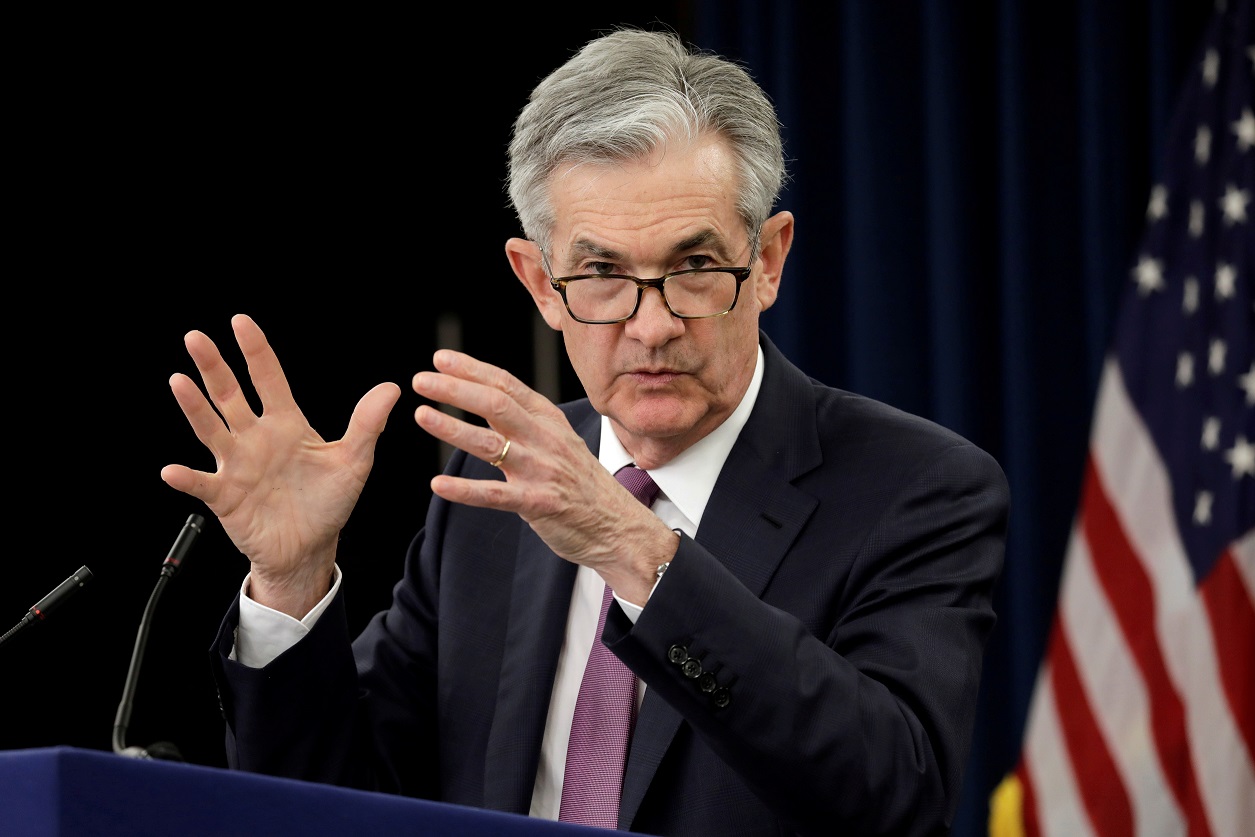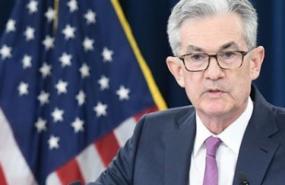
The Ibex has plummeted 7.88% to 6,107.2 points, although it has sunk 12%, to 5,814 during the day, after checking how the coronavirus continues to spread throughout the Old Continent and the US this weekend, and after the Federal Reserve (Fed) gave the surprise last night with a new drop in rates to try to mitigate its effects. Ahead of the monetary policy meeting, scheduled for this week, the Fed cut rates by 100 basis points last night, down to 0% -0.25%. In addition, it announced a $ 700 billion asset purchase (QE) program. We note that the agency carried out another cut of 50 basis points on March 3.
- 11.467,300
- 0,24%
At the press conference, Jerome Powell, chairman of the Fed, used a "determined and reassuring" tone, experts say. He underlined how the Fed is implementing a series of urgent measures to restore normal market operations, prevent liquidity shortages and ensure the flow of credit to households and businesses. And, although he stated that the agency has not run out of ammunition, he stressed the importance of a fiscal response.
As part of Sunday's action, the Federal Reserve and five other major central banks (including the ECB) announced that they were activating foreign exchange lines in an effort to ease the dollar shortage. The euro appreciated 0.4% and trades at $ 1.1150, Brent oil plummeted 10%, to $ 30.35; and the yield on the Spanish 10-year bond shoots up 40%, to 0.84%.
This movement by the Fed shows even more the complexity of the situation, something that has also been sufficiently clear this weekend in Spain, with the start of the confinement of the entire population, with the participation of the army included, to stop the virus spread.
"The United States economy is in recession. The global coronavirus pandemic will lead to a deep, pervasive and persistent decline in activity across the nation, with widespread cuts in travel and tourism activity, continued disruptions in chains of supply and a pullback in discretionary disbursements. (...) The Federal Reserve has decided to 'go big'. (...) While this show of force was necessary, it will probably not be enough to reassure markets without coordinated fiscal stimulus and visible containment of the virus, "experts at Oxford Economics warn.
"Central banks have played their role in recent weeks, now it is up to global policy makers, the G7 and / or the G20, to take large-scale fiscal measures in the coming weeks and months to complement these measures," he stresses. Michael Hewson, chief strategist at CMC Markets in London.
It should be remembered that last week, the European Central Bank (ECB) announced a series of incentives to deal with the coronavirus, among which there was no rate cut. This fact caused a debacle in the stock markets that led to the largest collapse of the Ibex in history (-14%).
"The Federal Reserve has put most of its strength into this movement, offering almost everything it has to give, which begs the inevitable question: if this doesn't work, what will?" Asks Seema Shah, strategist. chief of Principal Global Investors. "The immediate backlash (from the exchanges) suggests that markets remain concerned about the virus and that governments probably need to speed up their fiscal action," he adds.
Chinese stock markets have also reacted with falls to the performance of the Fed and left 3% on average. In addition, very bad new macro data has been released in China. February industrial production fell -13.5% from -3% of the consensus and after rising + 6.9% in the previous month. Investment in fixed assets for February decreased -24.5% compared to -2% estimated and after an increase of + 5.4% previously.
Added to all this is another rate cut, in this case by the Central Bank of New Zealand, which has lowered them from 1% to 0.25%.
In the daily reports on Monday from different investment firms, there is already a clear recession around the world and there is widespread fear that the different governments will not carry out the necessary fiscal measures to face the coronavirus and complement those of the central banks.
"Just a month ago, markets around the world were at their peak, at all-time or multi-year highs, with misplaced optimism about the outbreak and the prospect of containing it. Now we are here a month later and it is hard to imagine how we could get back to those levels again, "laments Hewson.
IBEX 35 ANALYSIS
"The Ibex closes relatively far from the lows of the day, although with significant falls in any case. But if we look at our European neighbors, they recover better than our selective and leave us with small 'hammer' formations after a crash, on average, of the 40%. We can not claim victory yet much less because at best we are talking about the start of a rebound. But, I insist, this always occurs (when we least expect it) and it is normal that it is more or less sustained over time. We are not talking about a rebound of a day or two, "explains José María Rodríguez, analyst at Bolsamanía.
"We are referring to a rebound that lasts for several weeks with its intermediate scares. A rebound of 15-20% after a whiplash of 40% in just three weeks. And it looks like stocks could be near the start of that long-awaited rebound. For now it seems that the 2012 lows have slowed the falls. Let's see what the price tells us, step by step ", concludes this expert.



